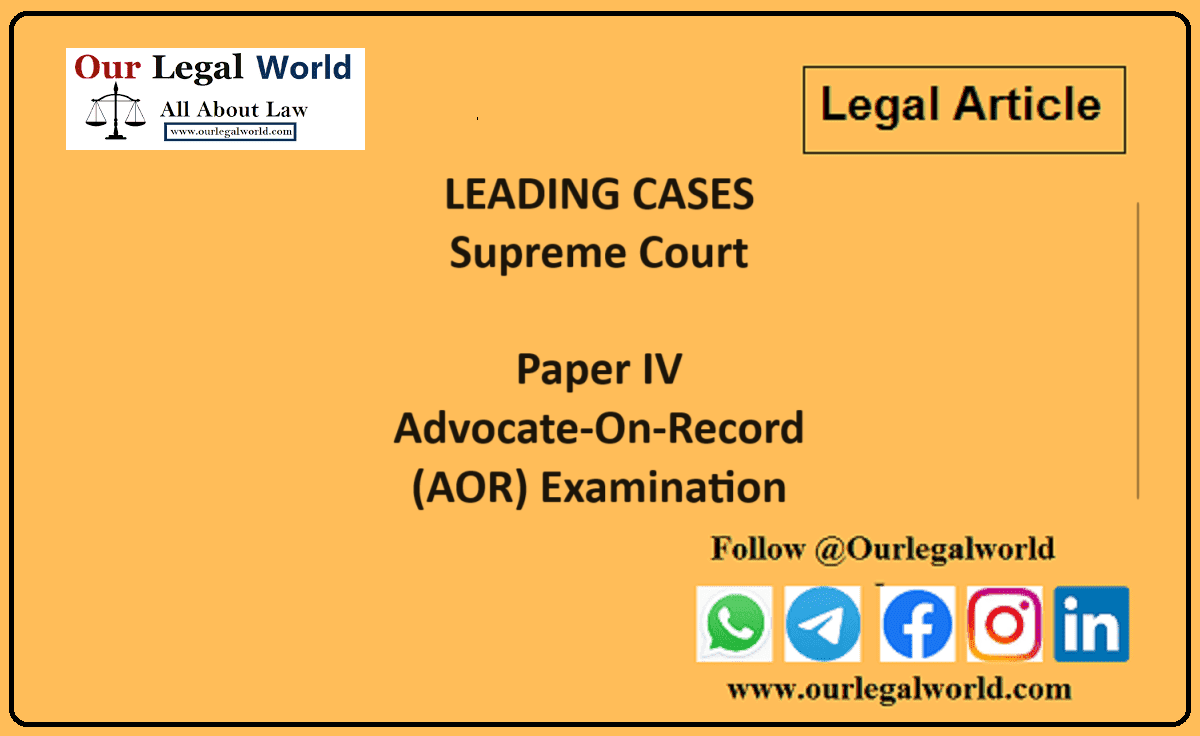Criticism of Austin’s theory of Positivism: Our Legal World
Criticism of Austin Theory or Positivism Theory
Introduction
Many thinkers and jurists compared Austin’s ideas with Bentham’s and concluded that Austin’s theory is more acceptable in modern societies.
The positive movement is believed to have started in the early 19th century. It emerged as a reaction to theoretical thinking, which had a greater impact on the importance of natural law in its complete ignorance of the reality of real law. Positivism is an approach to law that concerns itself with positive law i.e. legal system and rules actually in force different from ideal systems or law which should be. Thus, it has been said that the 19th century can be considered as the beginning of the positivist moment. The word positivism has a different meaning from the heart thus: Laws are orders/commands. This meaning is associated with Bentham and his discipline Austin, the two founders of British positivity. However, there is many distinctions between both of jurists.
Also Read: India and Mauritius- DTAA:- Our Legal World
Bentham’s theory about positivism:
• He is known today mainly for his moral philosophy, especially his theory of utilitarianism, which evaluates action based on his results.
• According to him, happiness is thus, a matter of experiencing happiness and a lack of pain.
• His most important theoretical work is an introduction to the principles of ethics and law (1789), which he said is the greatest pleasure principle described and developed.
• The concept of Bentham law is an essential meaning that the law is an assembly of signs, declaring a state to be violated or adopted by the sovereign. He theorized about personal utaliatlism.
Austin’s theory of positivism:
- Austin was the founder of Analytical school and the founder of English jurisprudence.
- He was born in 1719 and enlisted in the army and served as an army officer for 5 years.
- He was also a professor of law.
- He believed in the theory of sovereignty.
He divided laws into 2 parts:
- “The law is properly called.- ” Laws are properly called: they are laws which are commands. And directly imposed on any inferior by their superior.
(2) “The law is called improperly”- . Laws that are not commanded. for example. According to the laws of fashion.
According to him: law is the order which is given by any superior to any inferior. The basic features of properly so called laws are : - Command (by political superiors).
- Duty (levy of political inferiority).
- Sanction.
- Sovereignty.
Distinguished between Bentham’s and Austin’s theory of positivism:
- The definition of the term sovereignty provided by Austin talks about the external aspects as well as the internal aspect of sovereignty but the definition given by Bentham talks only on the internal aspects of sovereignty.
- According to Bentham, sovereignty limits can be imposed by entering into an agreement with external agencies, as per his will of sovereignty, but Austin opposed placing this limit on sovereignty powers and is not permitted.
Criticism of Austin’s theory of positivism: Austin’s Idea of positivism has been criticized on the following grounds-
- Customs are overlooked/ignored – Customs are always there to regulate human conduct and therefore, customs should also be included in the study of jurisprudence but Austin ignored them .When Austin remarks that the sovereign is the creator of laws, he ignores the fact that the foundations of the law are rooted in the general consciousness of people who manifest themselves in customs and thus disregard customary law Which are always widely respected and followed. Example: Personal laws, such as Hindu law, and Muslim law, existed long before the creation of a sovereign law, and even then, these laws were not only accepted but followed with extreme devotion
- No place for judge-made law: Judge–made law has no place in Austin’s conception of law , although the creative functions of the judiciary as a law-making agency have been accepted in modern times all over the world.
- The interrelation between law and morality is completely ignored: The greatest shortcoming of Austin’s theory is that it completely ignores the relationship between law and morality. The law never be completely separate from ethics/morality which provides strength to it.
- Sanction alone is not the means to induce obedience: Austin’s theory that this sanction which only governs people or motivates people to follow the law, is not correct. There are many other factors such as fear (of society), and reason (of internal conscience), which are helpful in motivating a person to follow the law.
Contrary to belief, the sanction is not the only motivation behind practising law. It is also respect for conscience and morality. One does not normally enter into a second marital relationship during the lifetime of the first spouse because they are afraid of being punished but also because of love and respect. Furthermore, if everyone decides to challenge the law given by the sovereign, it is bound to collapse … There are practical limits to legal sanctions. - Command overemphasised: Austin’s theory relies on the law of command in modern progressive democracies, law is nothing but an expression of the common will of the people, so the idea of order/commands does not apply in the current system.
- Law conferring privileges: : A law that is expressly admissible in character and accepts full documents such as ‘The Wills Act’, which follows the method of inclusion in the will document, is Austin’s law. Not covered by definition.
- Austin theory treats international law as morality: Austin does not treat international law as it because it lacks approval or sanction and Austin’s approach ignores the growing role of international law in achieving world peace.
Conclusion: Many thinkers and jurists compared Austin’s ideas with Bentham’s and concluded that Austin’s theory of positivism is more acceptable in modern societies. Austin’s view of positive law and the theory of positivity has been subjected to a significant amount of criticism and its applicability and relevance has been rejected by modern societies. But it has given rise to many important theories of analytical legal positivity.
Also Read: Nandini Satpathy vs. Dani (P.L.)- Case Analysis
Reference:
- www.ipblogleader.com
- Www. Legalbites.com
- V.d. mahajan , legal jurisprudence
- Www. Lawteacher.com







